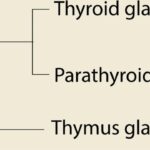Heart palpitations can be caused by a wide variety of factors; however, you may want to know: Does hydration cause palpitations? We will discuss hydration, dehydration, and overhydration and their effects on the cardiovascular system in the following paragraphs. Additionally, we will provide recommendations for appropriate practices to prevent palpitations.
What Are Palpitations?
Heart palpitation is a sensation that is characterized by irregular, fluttering, or throbbing heartbeats. The majority of people who have had palpitations feel as though their heart is beating at an extremely rapid pace is missing a few beats, or is even rotating in an inverted position. It may happen at any moment in time, whether one is passive, active, or fast asleep.
There are different causes of heart palpitations. It includes emotional stress, worry, excessive quantities of coffee, or certain medicines. Given that numerous processes inside the body are regulated by hydration, it is appropriate to look at the heart rhythm and suppression of heart palpitations from this perspective.
The Role of Hydration in the Body
Hydration is crucial to the body for it to function well. Water is necessary for blood circulation, carrying nutrients, removing waste, and maintaining body temperature.
Some dietary products and drinks include electrolytes such as sodium, potassium, and magnesium, which are needed for the correct functioning of the heart. Since those electrolytes are necessary for functional muscle activity, including the muscles of the heart, adequate hydration helps to manage their levels.
If the levels are too low owing to externally hydrated situations or too high removal of liquids, such conditions might create disruptions in those electrolytes, and heart palpitations can ensue.
Does Hydration heart palpitations?
Proper hydration is important for keeping healthy heart function and avoiding heart palpitations. While hydration itself doesn’t usually cause palpitations, an imbalance in electrolytes—sometimes caused by drinking large amounts of water in a short period—can occasionally lead to palpitations.
Over-hydration can dilute important electrolytes like sodium, potassium, and magnesium, which play a critical role in keeping a steady heart beat.
How to Prevent hydration that causes Palpitations
To avoid overhydration and its possible effects, including heart palpitations, it’s important to find a healthy balance in daily water intake.
Begin by listening to your body’s natural cues—drink when you feel thirsty, and avoid extra intake beyond your body’s needs. A general estimate is around 8 cups (2 liters) per day for most people, but this can change based on activity level, climate, and individual health needs.
Instead of drinking big amounts at once, spread your intake evenly throughout the day to keep steady hydration levels. If you’re participating in intense physical activities or in a hot setting, consider supplementing with electrolyte-rich drinks rather than only plain water, as electrolytes help control fluid balance and heart function.
Finally, watching urine color can also help: a light yellow color usually indicates proper hydration, whereas clear urine might signal that you’re drinking more than necessary. Taking these steps can help you stay well-hydrated without overloading your body and risks headaches.
The Connection Between Overhydration and Heart Palpitations
While there are cases where dehydration is indicated as a cause of palpitations, excessive ingestion of water also plays a part in upsetting the regular function of the heart. This is mainly caused by water intoxication when the intake of water is significantly more than what the body requires, resulting in a very low amount of sodium in the body and consequently hyponatremia.
What Is Hyponatremia?
Hyponatremia is a condition that develops when someone drinks more water than the body can excrete, resulting in excess water in the body, which influences the dilution of sodium in the body. The passage of electrical impulses to the heart and vice versa depends on sodium in the body.
The neurological systems that govern the heart rate have to work dangerously when there is less salt in the body, hence creating rapid heartbeats.
The symptoms of overhydration
Overhydration symptoms are also known as hypervolemia signs, which include:
- Nausea and vomiting
- Headaches
- Confusion or disorientation
- Muscle cramps
- In severe circumstances, there might be enlargement in the brain.
Did you know restarting fluid rather than excessive water drinking that may result in the development of these symptoms may make sense? When the demands for hydration are satisfied, the likelihood of triggering palpitations due to overhydration is fairly minimal.
Read also: Will Metoprolol Help With Heart Palpitations?
Factors That Influence Hydration Needs
Hydration in every individual is susceptible to diverse factors, such as age, intensity of exercise, and climate.
- Age: Younger people require more water than the old, although the elderly may be likely to dehydrate faster.
- Activity Level: People who participate in intense activities lose water via sweat and hence require more water to replenish it.
- Climate: Heat or dampness promotes greater perspiration, so more water is likely to be required in such settings.
It is crucial that one acknowledges his or her body’s signs of hydration deficit and supplements it with the proper amount of fluids. Water should be taken in when there is thirst, and the body’s reaction should be studied in relation to water to help avoid issues of both dehydration and overhydration, which will allow the heart to remain healthy.
Tips to Prevent Palpitations Through Proper Hydration
Achieving appropriate hydration can help avoid palpitations and enhance overall heart health. Here are some practical tips:
- Trust Your Yearning: Don’t put an arbitrary water rule on yourself. Drink just when you begin to feel thirsty. Your thirst would not mislead you when it comes to the water balance of your body more frequently than not.
- Add solid foods that are electrolyte dense: Potassium and magnesium included in foods such as bananas, cabbage, and sweet potatoes are crucial in maintaining electrolytes as well as the functioning of the heart.
- Water While Exercising: In case you are an athlete, make sure that there is a balance between fluid loss and fluid intake, especially in activity and in a hot atmosphere. In addition to water, try drinking electrolyte drinks to aid in replacing the lost minerals after rigorous activities.
- Don’t Overdrink: It is wise to keep oneself hydrated with enough water. However, ingesting water excessively causes, among others, hyponatremia. One should stick to sipping water according to thirst and not above that.
Other Causes of Palpitations
In the event that you are hydrated according to form and you are still suffering heart bumps and palpating feelings, which should be sought for and avoided. Other reasons for vibrations that are not connected with hydration are:
Alcohol or caffeine. Both of these medications have the potential to raise heart rate and produce palpitations.
Nervous Disorders: Emotional stress leads to the development of palpitations, as stress hormones raise the heart rate.
Pharmaceuticals: Some pharmaceuticals, such as inhalers for asthma, medications for the symptoms and treatment of thyroid diseases, and some decongestants, can produce heart palpitations as a side effect.
When to Seek Medical Advice if Hydration Causes Palpitations
While occasional palpitations are normally harmless, you should seek medical care if they’re accompanied by:
- Chest pain or discomfort
- Shortness of breath
- Fainting or dizziness
- A fast, irregular, or protracted heartbeat
In these circumstances, a healthcare expert can establish the underlying reason and offer suitable therapies or lifestyle improvements.
Frequently Asked Questions
Q: Can dehydration truly induce heart palpitations?
A. Yes, dehydration can induce heart palpitations. When dehydrated, your blood volume lowers, and the heart needs to work harder to pump blood, which may contribute to irregular heartbeats. An electrolyte imbalance due to dehydration might also lead to palpitations.
Q: What is the recommended amount of water consumed to prevent palpitations every day?
A: There is no exact coverage as it changes with people’s ages, how active they are, and even the weather conditions. In most circumstances, it is advised that individuals consume water whenever they are thirsty.
Q3: Can drinking large quantities of water induce heart palpitations?
A: Yes, ingesting significant amounts of liquids may result in overhydration and altering salt levels in the body, triggering heart palpitations. It is not suggested to drink so much water and wash the body with electrolytes immediately after, particularly when carrying out vigorous exercises.
Q: At what point do palpitations become a problem?
A: On the other hand, if you have palpitations coupled with chest discomfort, fainting, or shortness of breath, it is important to call your doctor. Also, repeated palpitations that occur for no apparent reason or that do not go away even when one makes lifestyle adjustments need to be checked by an expert physician.
Conclusion
The necessity of water in minimizing swings in heart rate cannot be overemphasized. Some circumstances of underhydration, as well as overhydration, are capable of affecting the regular working of the heart and can make one feel palpitations.
If you pay attention to your body, drink the proper quantity of liquid, and include meals that are high in electrolytes, you may help maintain your heart health and limit the chance of palpitations. It is clear and prudent to contact a qualified doctor if the painful heartbeats do not go away or grow more common.



